International Plastic Bag Free Day (July 3): History, Theme, Celebrations and Meaning to Our Environment
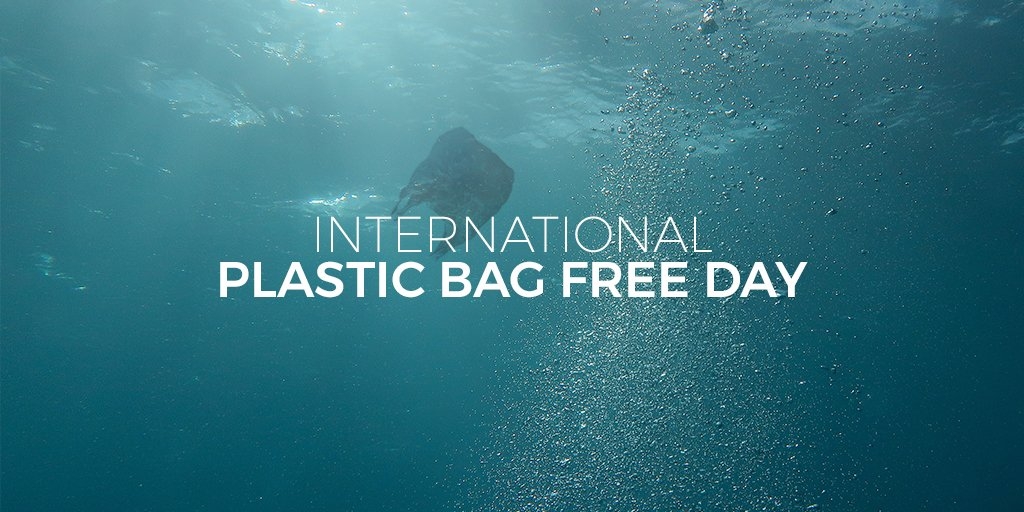 |
| Photo: Twitter |
The goal of the annual International Plastic Bag Free Day, which is observed on July 3, is to end the use of plastic bags. Despite their appearance as a convenience during grocery shopping, plastic bags have a significant negative impact on the environment. Plastic bags take up a lot of space in our landfills and pollute our waterways because they take up to 500 years to degrade.
International Plastic Bag Free Day (July 3): History
Single-use products have historically been considered blasphemous. But as the Industrial Revolution came to an end and the modern era began, plastic emerged as a cheap and abundant resource. One excellent example is plastic bags.
The history of the plastic bag has had an impact on our world from inception to ban. The most widely used plastic, polyethylene, was accidentally created in 1933 at a chemical plant in Northwich, England. This was the first industrially feasible synthesis of polyethylene, which had previously only been produced in small batches and was initially used covertly by the British military during World War II.
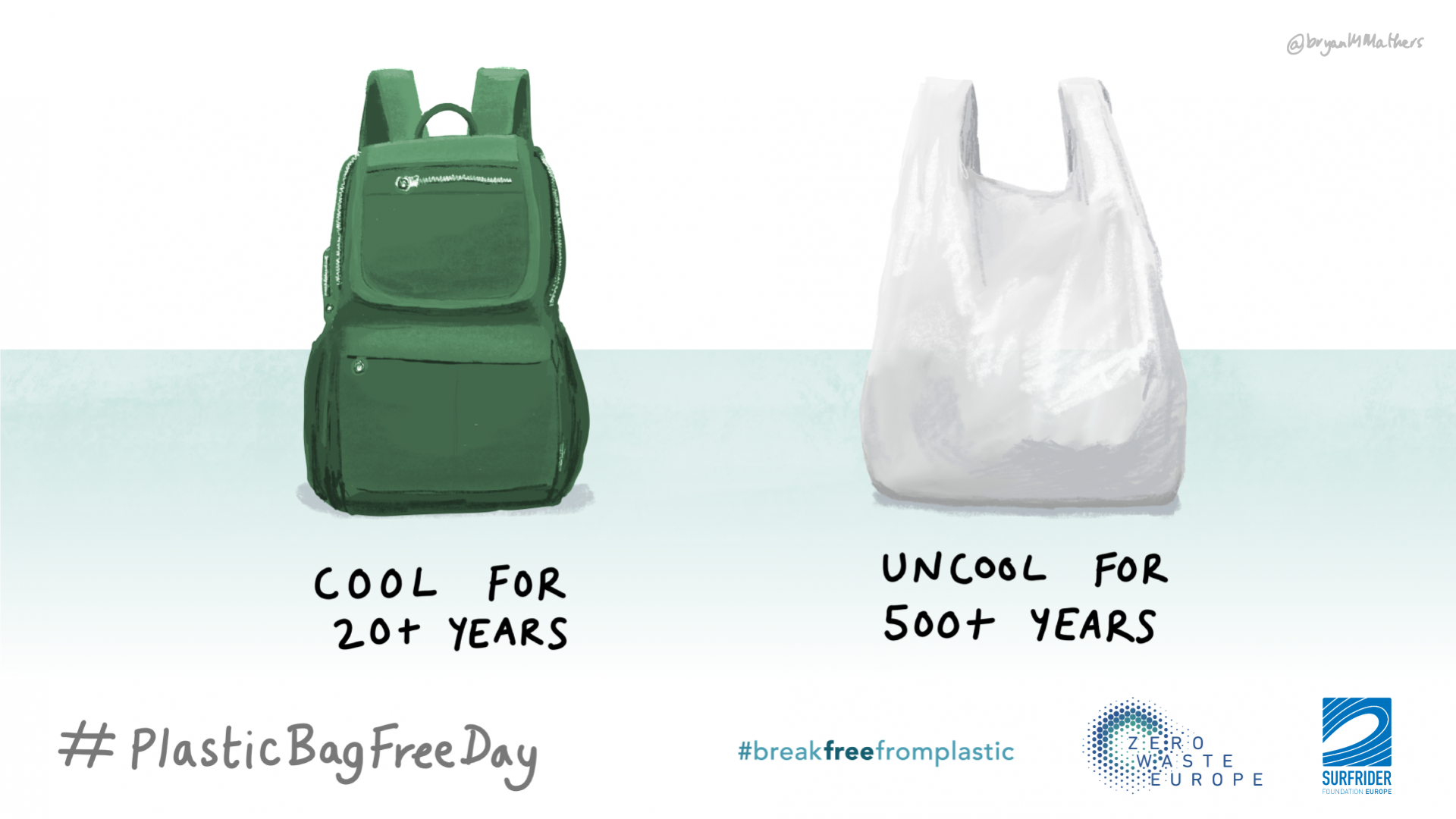 |
| Photo: Zero Waste Europe |
The Swedish business Celloplast obtained the patent for the single-piece polyethylene shopping bag in 1965. The plastic bag, created by engineer Sten Gustaf Thulin, quickly replaces cloth and plastic in Europe. Plastic bags left Europe where they dominated the bag market by 80% and were widely introduced to the US in 1979. Businesses that make plastic products started aggressively marketing them as being superior to paper and reusable bags.
The Great Pacific Garbage Patch is the largest of several gyres in the world's oceans where enormous amounts of plastic waste have accumulated and are endangering marine life. It was not discovered until 1997 by sailor and researcher Charles Moore. It was found that sea turtles frequently die from eating plastic bags because they believe the bags to be jellyfish.
In 2002, Bangladesh becomes the first nation in the world to enact a ban on thin plastic bags following the discovery that these bags were a major contributor to clogged drainage systems during disastrous flooding. Other nations, including South Africa, Rwanda, China, Australia, and Italy, quickly followed suit.
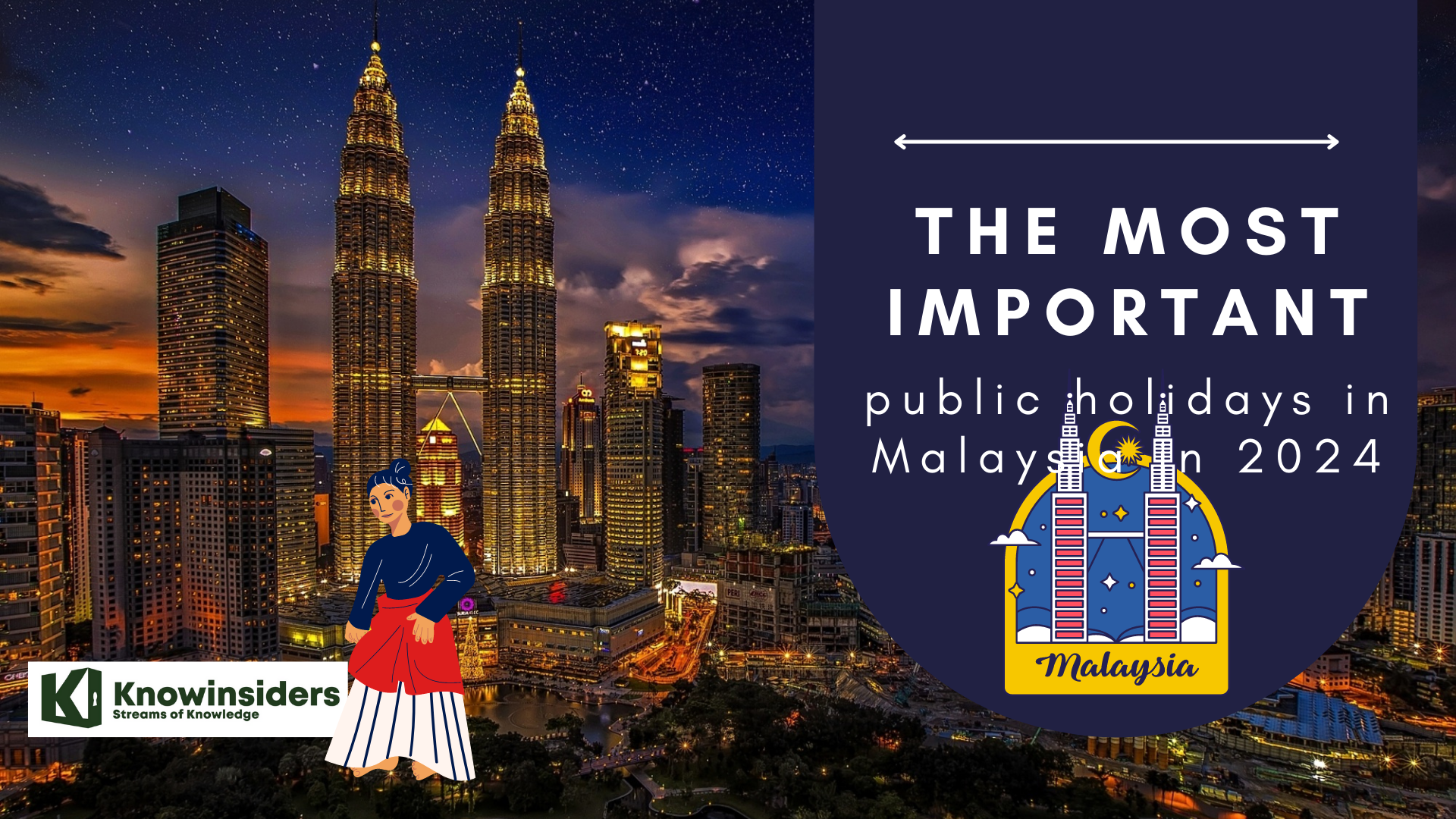 The Most Important Holidays In Malaysia In 2024 The Most Important Holidays In Malaysia In 2024 |
International Plastic Bag Free Day searches for safer substitutes to show that a world without such heavy plastic use is feasible. It is a component of the Break Free from Plastic Movement, which was launched in September 2016 and to which nearly 1,500 organizations have contributed. In order to make the planet safer for people, the environment, and wildlife, the movement is searching for solutions to the plastic pollution crisis.
International Plastic Bag Free Day (July 3): Significance
There are many positive ways to celebrate, and the simplest one only needs a straightforward decision on your part. The easiest thing you can do is choose paper or cloth over plastic when purchasing items from stores, or even better, bring your own bags. Start a campaign to get customers to bring their own reusable bags and stop giving out plastic bags if you own a business yourself.
Our use of plastic has a terrible impact on the marine ecosystem in particular. Over 100 species of sea birds have been found to have consumed plastic artifacts, compared to over 31 species of marine life. While entanglement rates of about 8% have been found in some sea lion and seal species, over 250 species have been found to be entangled in plastic. One of the most serious threats we all face is this one.
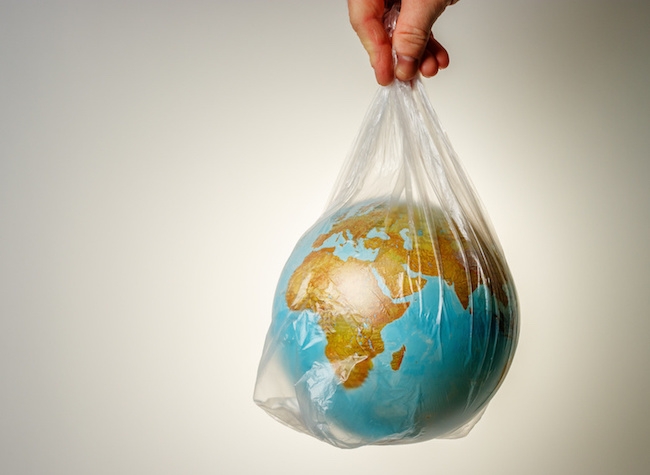 |
| Photo: Designnews |
Global catastrophe brought on by man-made plastic pollution. Globally, it is estimated that 500 billion plastic bags are used. The quality of human life as well as the environment and wildlife are seriously harmed by this. Take action that will benefit present-day society as well as future generations on International Plastic Bag Free Day 2020.
 Canada Day (July 1): History, Significance, Celebrations and Facts Canada Day (July 1): History, Significance, Celebrations and Facts |
International Plastic Bag Free Day (July 3): Celebrations
The goal of International Plastic Bag Free Day is to increase public awareness of the serious and urgent problems caused by plastic pollution. We learn more every day about how plastic is harming the environment and how corporations are reducing their use of plastic. But you also need to play your part as an individual. When using plastic bags, we need to consider the impact on our environment and the potential havoc it will cause in the future. Before completely disintegrating, plastic bags can last anywhere from 100 to 500 years in the environment. It is essential that we all act together.
Here is some activities to observe this day:
It is recommended to use non-woven bags to replace plastic bags
In many large shopping malls in European and American countries, non-woven bags have been used instead of commonly used plastic bags as storage containers! The non-woven bag is light in weight and can be reused many times. It is a new type of shopping bag that is very popular with consumers.
It is easy to degrade and can be recycled. It is gradually becoming a must-have shopping bag for people's daily shopping. If If you want to know more about bags, I recommend Zhengxin brand non-woven bags. They produce various sizes of non-woven bags, such as W, D type, etc...
Stop using plastic bags.
The best way to celebrate is also the easiest to do. Wherever you find yourself on July 3rd, from the grocery store to the park, to a restaurant, make sure not to use and not to ask for any plastic bags.
Reduce, reuse, and recycle!
Another spectacular way to celebrate is to recycle and upcycle the things around you. Even if you have some plastic bags lying around, don’t throw them away. You can use them as extra trash bags or an alternative to a lunchbox as just a few examples.
Practice your green thumb.
Use your day to give Mother Nature a helping hand (or thumb). It’s the perfect time to finally plant a new tree or plant some nice flowers. The planet and the wildlife around your house will thank you!
 International Joke Day (July 1): Top Jokes, History, Celebrations and Facts International Joke Day (July 1): Top Jokes, History, Celebrations and Facts |
5 IMPORTANT FACTS ABOUT PLASTIC BAG USAGE1. Plastic decays slowly. It takes over 700 years for single-use plastic to begin decomposing, and 1000 years to degrade completely. 2. Plastic is directly harmful to wildlife. In 2008, a beached sperm whale was found with almost 50 pounds of single-use plastic in its stomach. 3. 5 trillion plastic bags are produced annually. If placed next to each other, the bags would wrap around the entire planet seven times. 4. Very few of them are recycled. According to some reports, only 1% to 3% of plastic bags are recycled globally. 5. Plankton have become outnumbered. In the Northern Pacific, there are 6x more single-use plastic particles than plankton. |
 Top 10 Best Firework Displays To Celebrate US Independence Day (July 4) Top 10 Best Firework Displays To Celebrate US Independence Day (July 4) The US Independence Day (July 4) is coming. One of best ways to celebrate it is firework ... |
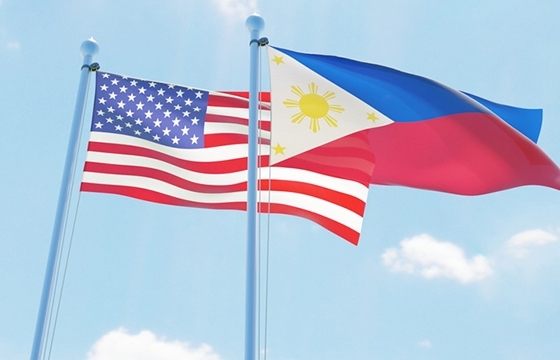 Filipino-American Friendship Day (July 4): History, Significance and Celebration Filipino-American Friendship Day (July 4): History, Significance and Celebration Filipino-American Friendship Day, previously known as Philippine Republic Day, is a holiday in the Philippines observed on July 4. Let's find out about this important ... |
 Canada Day (July 1): History, Significance, Celebrations and Facts Canada Day (July 1): History, Significance, Celebrations and Facts Canada Day is a public holiday when Canadians across the country and around the world show their pride in their history, culture, and achievements! |























